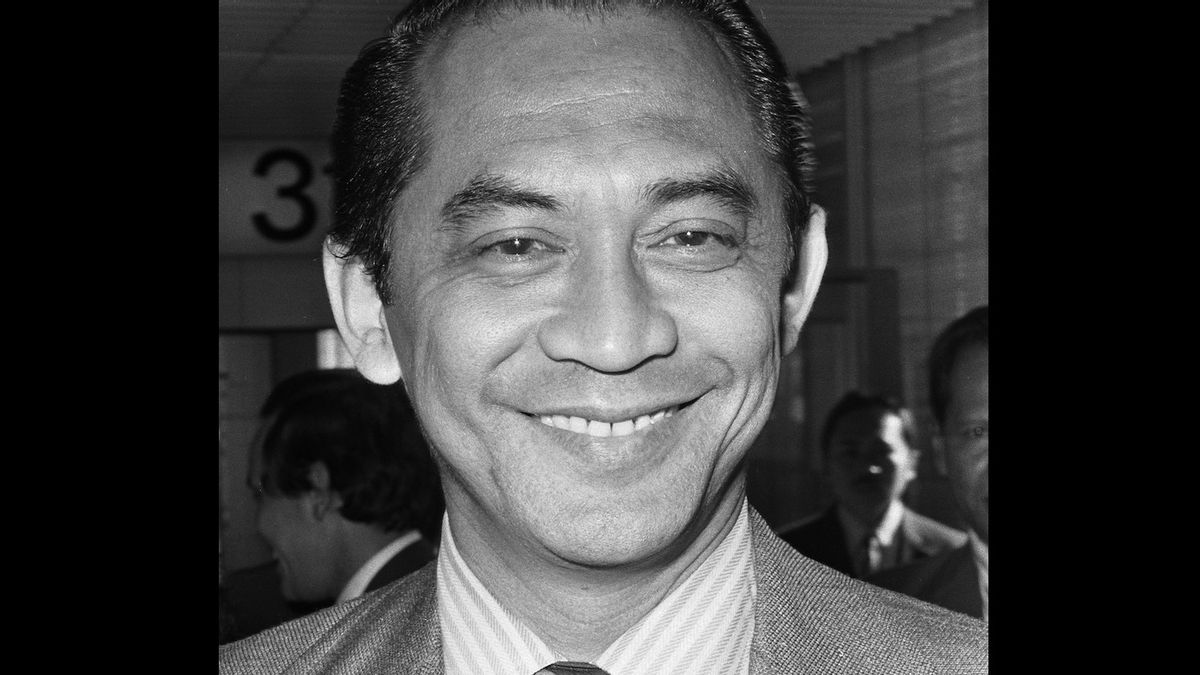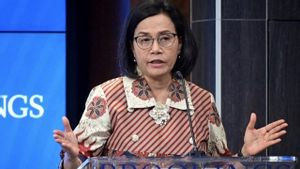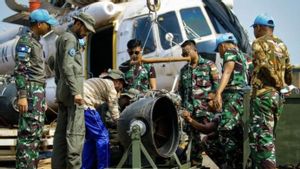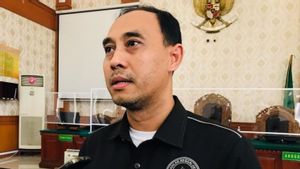
JAKARTA - Ali Sadikin once said that the Jakarta floods are the most troublesome thing for every ruler. It is not wrong to see the history of flooding in Jakarta or the future telescope from the eyes of Ali Sadikin, who led Jakarta in the 1966-1977 period. Ali even refused to promise to solve the Jakarta floods. Not that he didn't try. However, the Jakarta floods are that complex.
The central government was so stingy at that time. Like a grocer, the central government releases funds in a patchy manner. Flood countermeasures are far from optimal. Flood management in Jakarta is a piece of the old story about the capital city.
Since the Dutch colonial era, efforts to overcome floods have been made. The colonial government actually managed to cope with flooding. But only for a while. This success was achieved by a Dutch engineer, Herman van Breen, who was the chairman of the Flood Prevention Planning Team.
The canal flooding to the west and east was Van Breen's idea. We have reviewed more details about Herman van Breen through the article "Herman van Breen Building West Flood Canal to Control Water in Batavia".

Dutch flood control, said Ali Sadikin only for Batavia (Jakarta) which had a population of 600 thousand before 1945. At the end of Ali Sadikin's office, the population of Jakarta had almost reached ten times as much.
Many of the countermeasures are constrained by cost. At that time, it was estimated that to cope with the floods in Jakarta, the government needed at least 800 million dollars. An amount that neither the Jakarta government nor the central government could possibly issue.
"The danger of flooding in Jakarta, that's how we thought during my time as governor, it is inevitable at any time, as long as we don't have a perfect drainage system. To overcome the danger completely, it is too expensive, too expensive. The cost required, at that time, was 800 million dollars if it was finished, "said Ali Sadikin, quoted by Ramadhan KH in the book Bang Ali: Demi Jakarta 1966-1977 (1992).
The perfect drainage system, explained Ali Sadikin, includes how to immediately drain water into the sea. Because of the poor infrastructure and irrigation systems, the expression that Jakarta is flood-free is an empty phrase.

Ali Sadikin can only rely on the West Flood Canal (BKB) to minimize the impact of the flood. He is so dependent. Every time the water volume rises, Ali Sadikin always leaves the house and hangs out at Manggarai Water Gate to monitor the flood canals. Ali Sadikin pays close attention to the condition of the flood canals, including monitoring the volume of water.
He once said that if the flood canal collapsed, the city of Jakarta would be torn apart by the flood. The government must be good at regulating the water that enters the Ciliwung river. Securing flood canals is the main goal. But Ali is reluctant to give up his promise that Jakarta will be flood free. Moreover, the efforts made were only short term.
“Governor Ali Sadikin in the same year realistically said he did not want to deceive the people of Jakarta by promising that this city would be flood-free as long as the cost was not possible. Based on 1973 calculations, the DKI Flood Control Master Plan for the cost of flood control works both macro and micro requires approximately 450 billion. For the macro work of constructing two flood canals (east and west), reservoirs of pump houses amounting to 207.5 billion, and micro works such as drainage and sanitation riolering of up to 242 billion, "said a report in the Sinar Harapan newspaper on April 7, 1984.
Ali Sadikin's efforts to handle the floods
Even though the flood prevention plan was hampered by funding, Ali Sadikin did not give up. He continues to routinely carry out a short-term rehabilitation scheme to tackle the threat of flooding. Some of them are dredging river estuaries, normalizing rivers and channels, constructing reservoirs, storing water, and installing drainage pump installations.
[/ read_more]
To widen the river flow, Ali Sadikin issued a decree on February 16, 1976 which regulated the issue of river bank order. The decree contains cleaning up of buildings located on the riverbanks.
Quoted by Restu Gunawan in the book Failure of the Canal System (2010), the cleaning area includes the area on the left bank and the right bank of the Ciliwung river. From the flood canal to the Kapitol floodgate in Central Jakarta. Then the eviction of buildings was carried out along the 2.4 kilometers along the river in 1976. The eviction resulted in the loss of the homes of 37,500 households.

"Ali Sadikin also instructed the Mayor of West Jakarta and Central Jakarta to, at the latest on February 10, 1977, clean the banks of the Cideng River and the flood canals of illegal buildings. However, due to the incomplete normalization of the river, the water still seeps into the village, "said Restu Gunawan.
These programs are considered successful. However, its success was only in preventing flooding in the villages, not preventing flooding in Jakarta as a whole. This also makes Jakarta vulnerable to flooding problems in the coming years. To deal with the Jakarta floods, Ali suggested to his successors to strengthen the synergy between the central, regional and local leaders.
"At least I hope all of these efforts can arouse public attention to the seriousness of this problem. I used the momentum to implement the village improvement program to motivate community participation. Maintenance of the sewers that I have built should be their responsibility too. For a city as crowded and as poor as Jakarta, maintaining environmental quality can only be carried out with community participation, ”said Ali Sadikin in the book Gita Jaya (1977).
MEMORY Other[/ read_more]
The English, Chinese, Japanese, Arabic, and French versions are automatically generated by the AI. So there may still be inaccuracies in translating, please always see Indonesian as our main language. (system supported by DigitalSiber.id)









